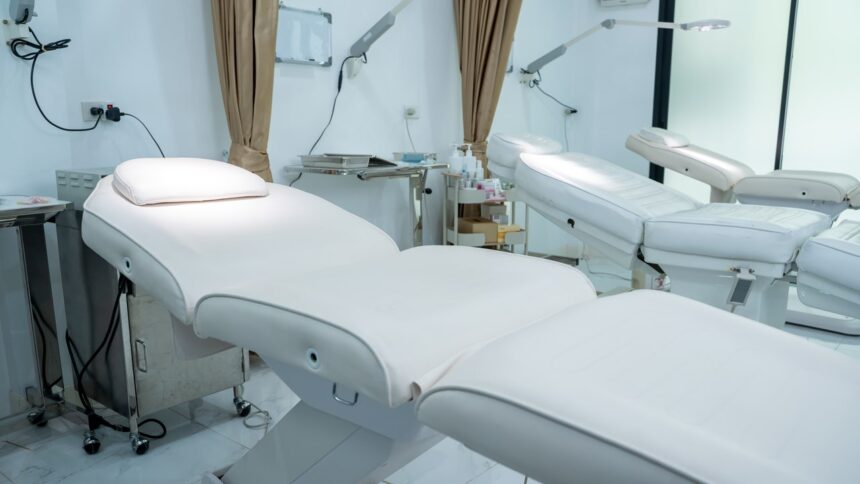“Vampire” facials—the microneedling treatment popularized by influencers like Kim Kardashian around 2013—are back in the news for a terrifying reason.
In a report published by the CDC on April 26, it was revealed that multiple people may have been infected with HIV after undergoing the procedure at a wellness spa in New Mexico. According to the report, a woman with “no known HIV risk factors” was diagnosed with HIV in 2018 after “exposure to needles from cosmetic platelet-rich plasma microneedling facials.”
The owner of the spa, which closed in the fall of 2018, did not have the appropriate licenses to practice the procedure. The treatment involves drawing blood from an individual, then spinning it in a centrifuge to separate the red blood cells from the platelet-rich plasma (PRP). From there, that PRP is then injected back into the client’s face with microneedles. The treatment is often used for “evening out skin tone and texture, treating mild scars, and addressing pigment irregularities,” dermatologist Adarsh Vijay Mudgil, MD, tells Glamour.
Instagram content
This content can also be viewed on the site it originates from.
According to the report, an on-site investigation found “multiple unsafe infection control practices” in place, including storing medical injectables like Botox in a fridge alongside food. A “rack of unlabeled tubes containing blood” were also found on a kitchen counter, and it’s believed that certain pieces of disposable medical equipment were “cleaned by alcohol immersion and reused.”
By 2023 an investigation identified four former clients and one of the client’s sexual partners all received positive HIV infection diagnoses. While the spa allegedly did not have proper filing measures in place to contact all former clients, the investigators were able to test nearly 200 other spa clients, per Ars Technica.
Dr. Mudgil advises that people seeking “vampire” facials “should see either a board-certified dermatologist or a plastic surgeon for these sorts of procedures.” When the procedure is completed properly, Dr. Mudgil says, the likelihood of a complication like this is basically “zero.”

